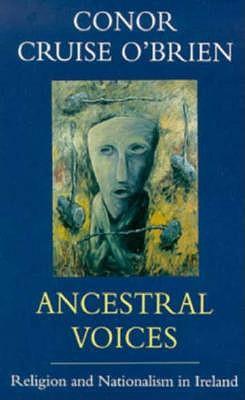Full Product Details
Author: Conor Cruise O'Brien
Publisher: The University of Chicago Press
Imprint: University of Chicago Press
Edition: Univ of Chicago PR ed.
Dimensions:
Width: 1.40cm
, Height: 0.10cm
, Length: 2.10cm
Weight: 0.284kg
ISBN: 9780226616520
ISBN 10: 0226616525
Pages: 30
Publication Date: 18 December 1995
Audience:
College/higher education
,
Professional and scholarly
,
Undergraduate
,
Postgraduate, Research & Scholarly
Format: Paperback
Publisher's Status: Active
Availability: Out of stock

The supplier is temporarily out of stock of this item. It will be ordered for you on backorder and shipped when it becomes available.
Reviews
A courageous book by one of the most distinguished living Irishmen (now pro-chancellor of the University of Dublin and an editor of both the Observer and the Atlantic Monthly), which slices through the superficial optimism currently prevailing about Northern Ireland. At the heart of the problem, for O'Brien (On the Eve of the Millennium, p. 1258, etc.), himself a Catholic, is the Catholic-nationalist ambivalence on Northern Ireland: On the one hand, one wants peace with it; on the other hand, one wants to destroy it. This ambivalence has been complicated, in O'Brien's view, by the role of the Catholic Church. For much of Irish history, the Church attempted to discourage expressions of nationalism, but in the latter half of the 19th century it began to support Catholic nationalism, in part to prevent the nationalist cause from being taken over by Protestants. The outcome of these ancestral voices inflaming nationalist feelings (as in the line from Coleridge's Kubla Khan, ancestral voices prophesying war ) was the Easter Rising of 1916 and the later civil war. The generation that experienced those miseries was vaccinated against the ancestral voices. The younger generation has no such immunity. In O'Brien's view, Gerry Adams, the leader of the political arm of Sinn Fein, and John Hume, the leader of the Social Democratic and Labor Party, are manipulating the peace process to push Northern Ireland into an increasingly untenable position and intend to force the British to leave the country. O'Brien predicts that guerilla warfare will erupt again, that the British may go, leaving both sets of natives to fight it out, and that the ceasefire represents neither peace nor a basis on which peace can be constructed. The book bears some signs of haste in its composition, but its somber and persuasive message should gain it wide and deserved attention. (Kirkus Reviews)
Author Information
Conor Cruise O'Brien (1917-2008) was a leading Irish intellectual of his generation and had a distinguished career in public life as a diplomat, politician, government minister, writer, newspaper editor, critic, and scholar. He published numerous books in subjects such as history, biography, politics, and religion.



